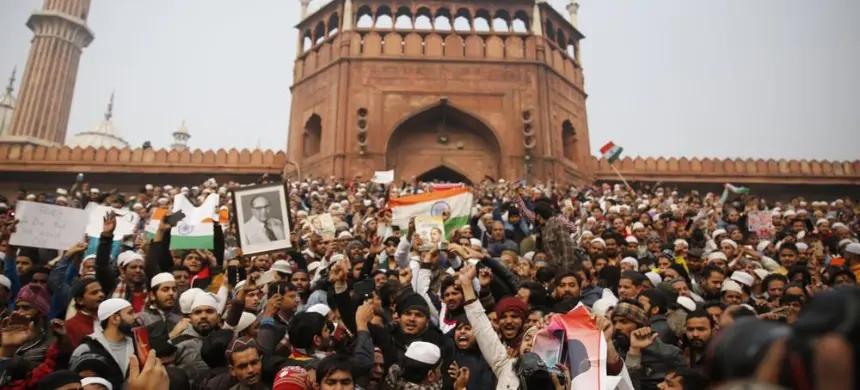India is experiencing widespread protests and unrest over deteriorating human rights conditions and increasing lawlessness under Prime Minister Narendra Modi’s third term. The country is witnessing significant violence and unrest, particularly targeting religious and ethnic minorities, women, and children.
Major cities from Delhi to Odisha and Bihar have come to a standstill due to extensive strikes. Dalit and Adivasi organizations have called for a “Bharat Bandh” strike, demanding better representation in jobs and education, as well as protection of their constitutional rights.
Read More: Ukraine launches one of the largest-ever drone strikes on Moscow, targeting the Russian capital
The Modi government’s endorsement of Hindutva ideology has intensified societal divisions, leading to heightened tensions across religious, ethnic, and linguistic lines. A recent Supreme Court ruling has exacerbated these tensions by reportedly undermining the educational and professional rights of Dalit and Adivasi communities.
The “Bharat Bandh” strike has spread to various states including Odisha, Patna, Bihar, Jharkhand, Madhya Pradesh, Kerala, and Rajasthan. The protests have been fueled by a series of violent incidents, such as the gang rape and murder of a trainee doctor at RG Kar Hospital in Kolkata, which ignited widespread outrage.
In West Bengal’s Nandigram, BJP workers allegedly subjected a woman to public humiliation as a form of political retaliation, further inflaming the situation and leading to more protests and anti-Modi slogans. The Modi government faces increasing criticism for its handling of the unrest and its perceived failure to maintain law and order, raising concerns about the growing instability within the country.











